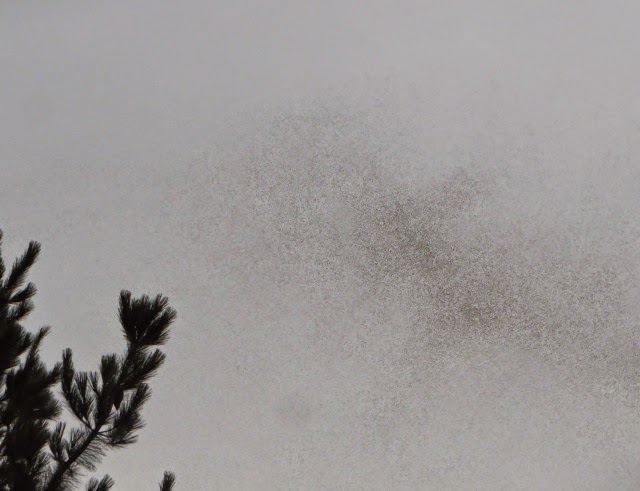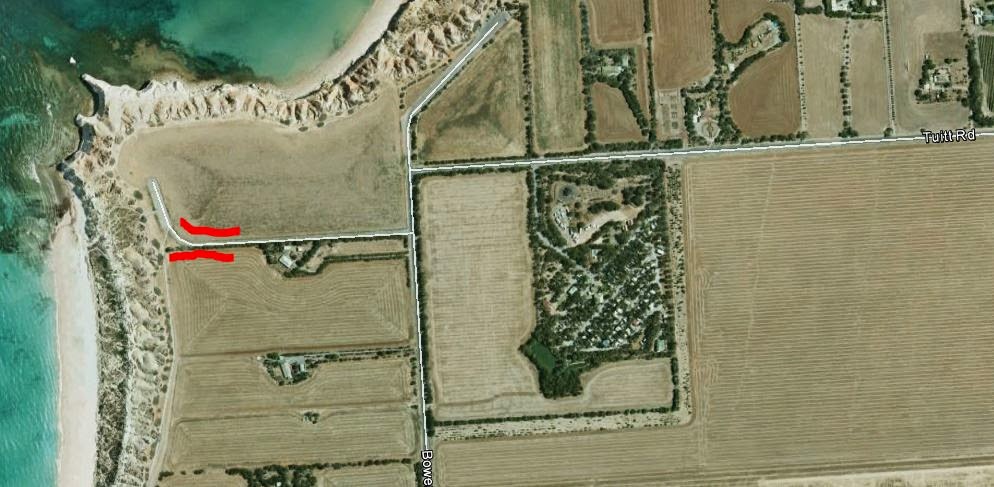Earwig Wars
NOTE: this body of this post was composed by Rob, a friend who is a keen gardener, rather than myself. However I thought the content and tone of the post were quite suitable for my blog (he doesn't run one himself, possibly because he spends most of his waking hours pursuing earwigs) and he has given permission for me to copy his work.
As a result any references in the rest of this post to "my garden" or in the first person refers to Rob's garden and/or other activities rather than my own!
As a result any references in the rest of this post to "my garden" or in the first person refers to Rob's garden and/or other activities rather than my own!
For the last few years the productivity in my
garden has dropped off quite a bit – initially due to drought and water
restrictions, but last year when water was plentiful I had terrible
trouble with plants, especially seedlings being eaten. I assumed that it
was slugs and snails and took appropriate action, but with only limited
results. Things that I grew from seed would get wiped out overnight –
entire rows of carrots demolished for example or broccoli seedlings
chewed back to ground level. Larger plants (either survivors or larger
seedlings) might get a bit munched, but survived OK. I concluded that
it wasn’t snails doing the damage and started to form my suspicions
about earwigs and slaters.
When
I was in Adelaide in the middle of the year, Shaun my brother in law
told me that he had once had an earwig infestation and gave me a method
to combat it. This involved leaving pieces of corrugated cardboard in
the garden under which the earwigs would shelter and you could then
catch and destroy them. This again only produced limited success and
quite a bit of cardboard in the garden.
When
we went to Malaysia in October I had just germinated 2 rows of carrots,
a row of beetroot, 4 zucchinis and 6 cucumbers. When we returned, my
veggie garden consisted of 1 carrot – not 1 row, but 1 carrot.
Everything else had been eaten. I wasn’t happy and having confirmed via
Shaun that earwigs were probably the problem resorted to Dr Google and
commenced a war. I have now tried a variety of methods which I detail
below
2. Spray plants with a soapy water solution
3. Earwig trap - a tin of oil and soy sauce buried at ground level
4. Newspaper rolled up which attracts them (variation on Shaun’s method)
5. Pyrethrum
6. Cleaning up leaf litter and finding nests
7. Earwigs are nocturnal so going out with a torch and squishing them with your fingers
All
of these methods have been tried. I decided it would be interesting to
keep track of which method was more successful by counting successful
‘kills’. Of course some methods it is hard to tell – the soapy water
might be effective, but it didn’t produce and carcasses. Also some
methods are done in combination – pyrethrum sprayed into a crack in a
retaining wall flushed out quite a number who were then squished. Also I
don’t know if they would die from pyrethrum contact – they certainly
didn’t like it much.
The body count summary is
2. Soapy water – 0 (but perhaps might help keep them away – I did spray half a row of beetroot & they have fared better than the other half (might taste soapy though?))
3. Trap – 0 a complete waste of time
4. Newspaper - 1 death
5. Pyrethrum – 0 confirmed, but certainly useful
6. Clean up. I have found 5 ‘nests’ in compost, leaf litter and retaining walls. With the use of pyrethrum & squishing this has resulted in 634 deaths
7. Nocturnal squishing 1564 squished between my fingers
A total of 1933 earwigs have been eliminated.
Unfortunately
method 7, while very effective does involve grovelling around outside
in the dark and also gives me sore back from leaning over the plants .
Method 6 is also quite effective, but of course you have to find the
nests. I now find myself looking at the garden in a whole new light. ’If
I was an earwig, would I want to live there?’
Most
of the time when you spot an earwig it is a sitting duck, but every now
and then, one is too quick for me (quite often actually, especially if
it is after dinner) and escapes. They are quite adept at just hiding in
the soil or mulch. A few times they have managed to get me with their
nippers – it doesn’t really hurt but was enough of a shock that the
first 3 times I dropped them (now I just squish harder). I wonder if
via a form of natural selection I am building a race of super earwigs
that will taunt me in years to come.



Comments